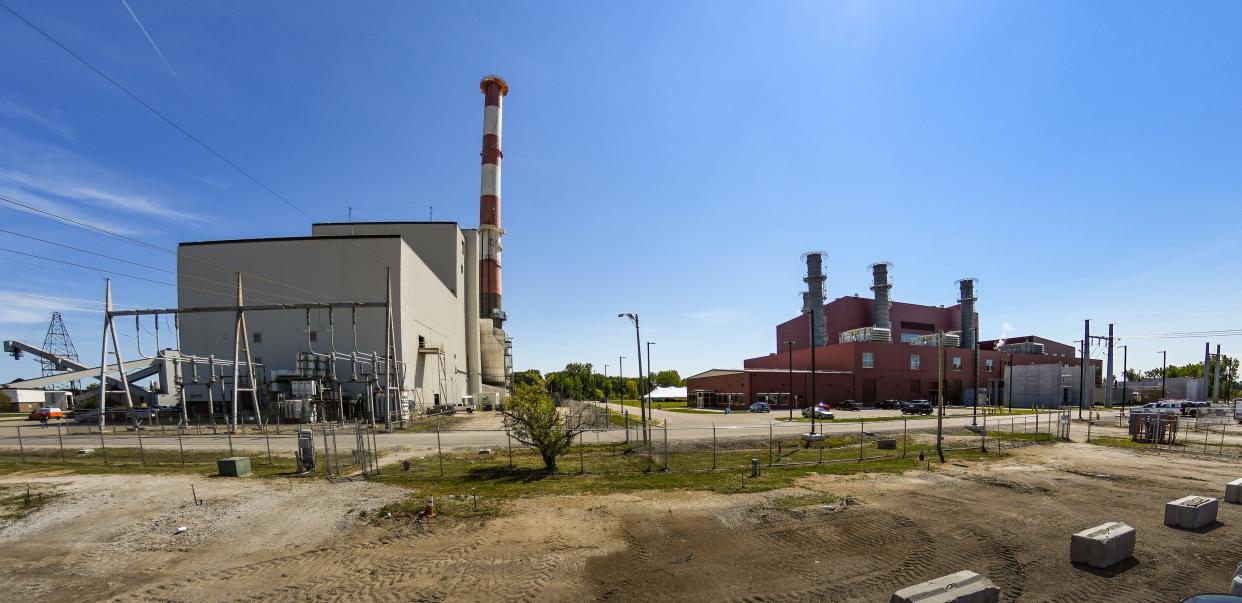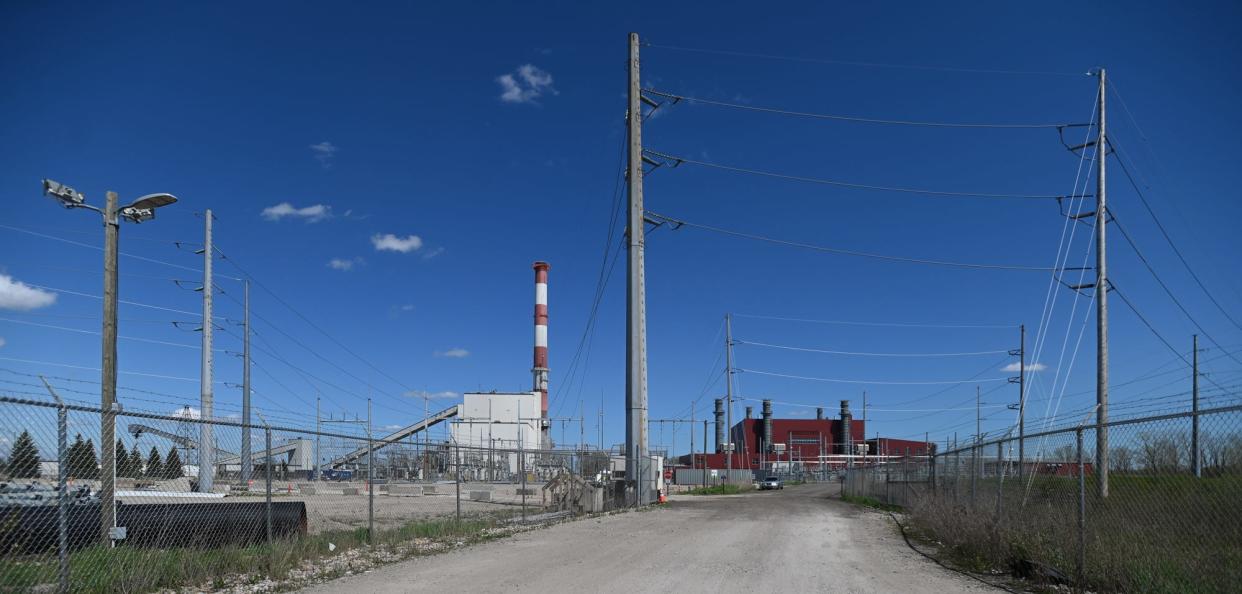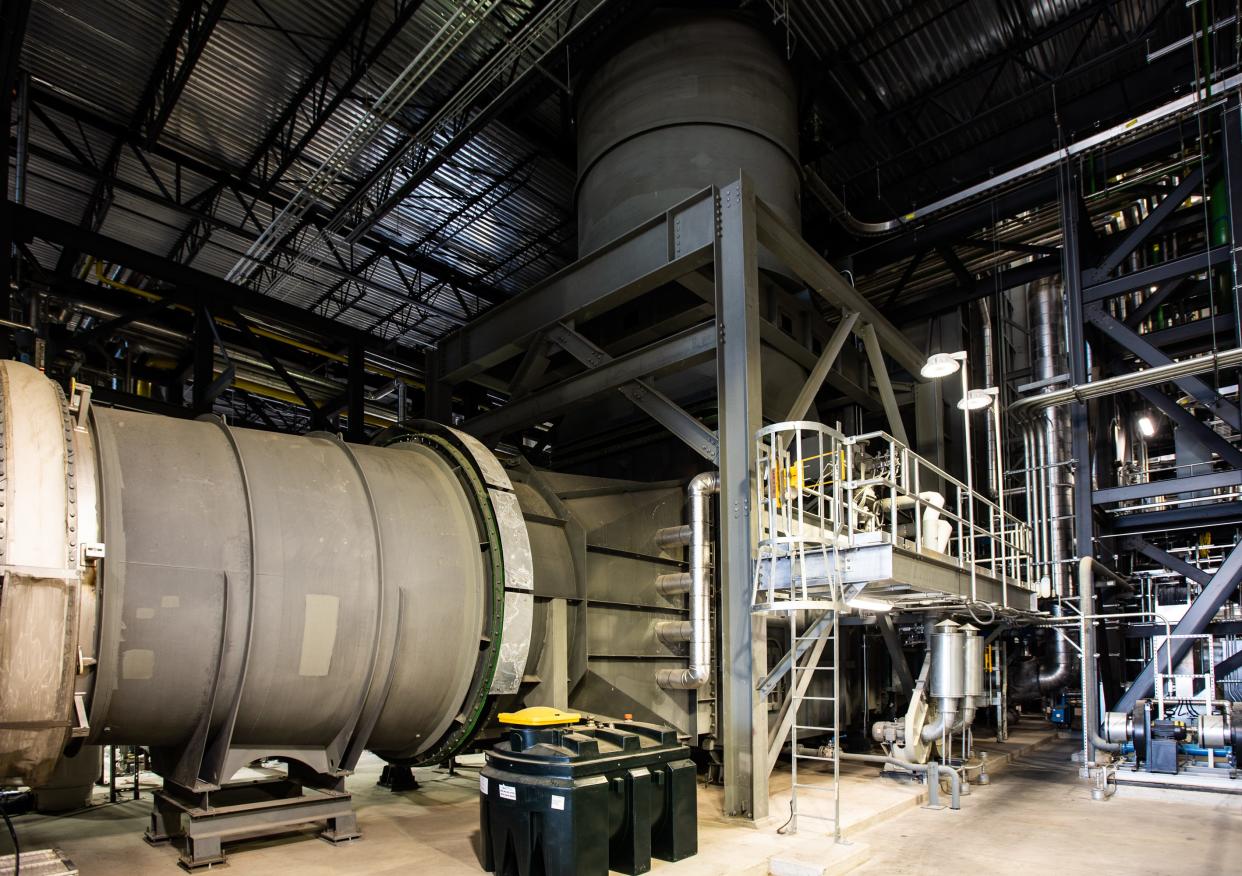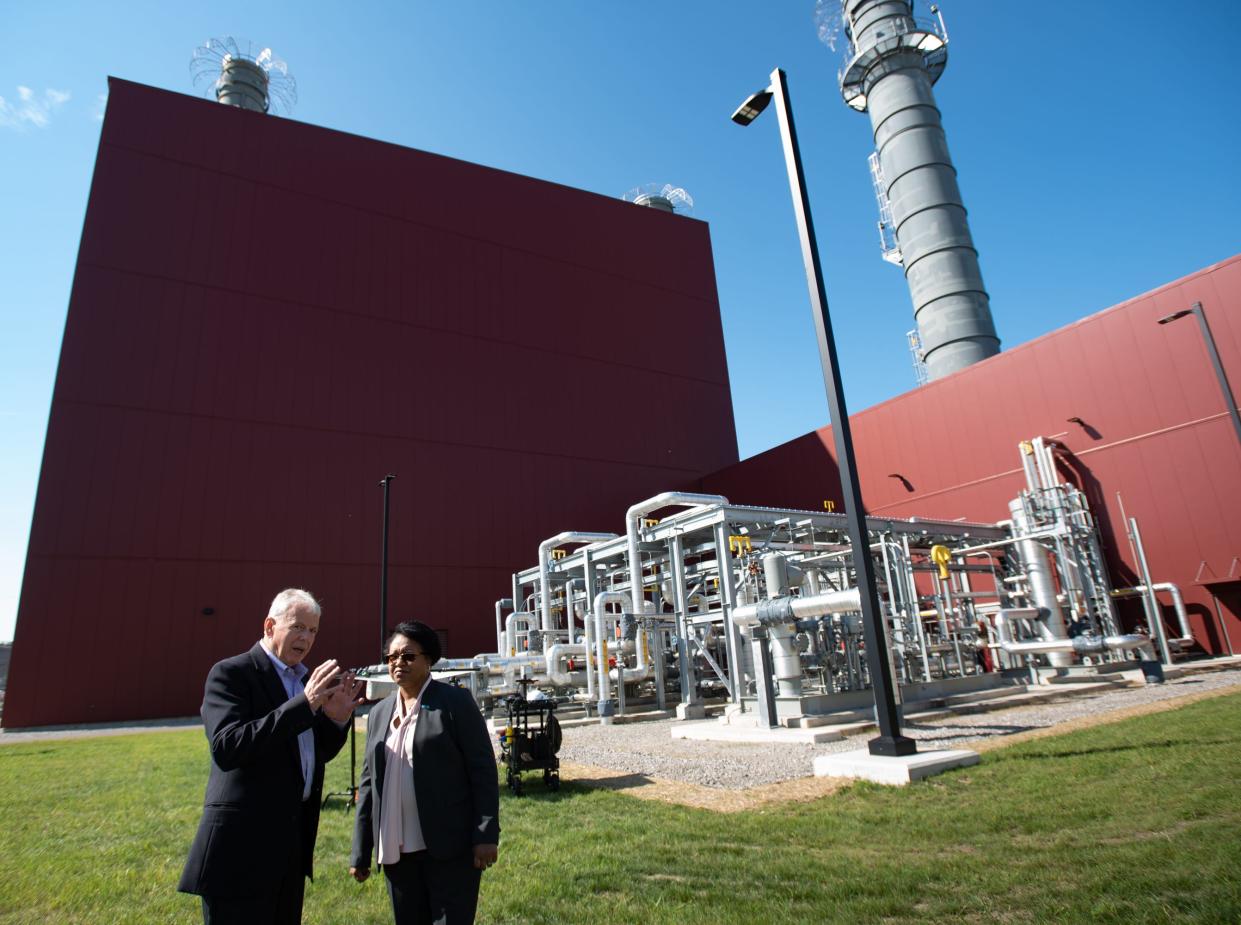BWL is building a new gas power plant on Lansing's west side. Here's why

LANSING — Marta and Jon Kermiet had a few months of relief when the coal-fired Erickson Power Station closed in 2022, breathing easier after years of asthma symptoms.
But they've been breathing tighter again, nervous about what will happen if Lansing Board of Water and Light goes through with its plan to build a new natural gas power plant in Delta Township.
The utility is planning to build a reciprocating internal combustion engine (RICE) with six gas-fired generators and two diesel-fired emergency generators that would generate about 110 megawatts or about one-fifth of the utility's current power.
That's the same amount of electricity that an Ultium battery plant, expected to open in 2025, is estimated to draw at full production levels, Dick Peffley, general manager of BWL, said in a statement.
He said the battery plant, increased demand nationwide and the pending loss of BWL's coal-fired electricity are why the utility is pushing for a new plant.
The utility's RICE project is about $160 million of the $325 million the utility has bonded out so far as part of a decade-long $750 million clean energy push, which included the RICE plant as well as battery, wind and solar operations.

The new RICE plant would serve as a backup for renewable energy as well as supplemental power.
"They are not designed to operate 24 hours a day, 365 days a year like a typical natural gas plant, but instead cycle on and off for short periods when necessary to ensure grid stability and support the electricity provided from intermittent resources like wind and solar," Peffley said in a statement.
The proposed BWL plant is expected to produce about 550,000 tons of greenhouse gases each year, roughly comparable to about 120,000 vehicles on the road, according to Environmental Protection Agency estimates.
The utility has set green energy goals of being 50% clean energy by 2030. State goals have called for carbon neutrality for energy production by 2040.
The Michigan Department of Environment, Great Lakes and Energy is hosting a 6 p.m. Wednesday virtual air quality hearing, which callers can access by phone at 636-651-3142 and using conference code 374288.
The agency also will accept written comments or voicemails through May 14.
Debates over environmental effects

At neighborhood meetings in the past few weeks, dozens of neighbors have begun to hear about the project and they're sharing similar concerns about pollution and other environmental concerns.
The Kermiets said they have a lot of questions about the power plant, such as whether alternatives were considered and whether the electricity is necessary.
"Jobs are important and electric cars are important," Marta Kermiet said. "But there's a false dichotomy there. The community should have been informed and we should have a say, with some experts to weigh in."
BWL currently operates two natural gas plants. Delta Energy Park is at the site of the former Erickson plant and where the new RICE plant could be. The park operates a combination of combustion and steam turbines.
The REO Cogeneration Plant and Depot, BWL's first gas plant in 40 years, opened in 2013 and when it opened it was considered the "cleanest and most efficient in the country," Peffley said at the time. Natural gas is the biggest part of BWL's energy mix, between half and 60% of the utility's offerings.
If the new gas plant is approved and built, it could make it more difficult for the utility to meet its green energy targets by adding a big not-green power plant while struggling to place greener energy sources such as wind and solar projects throughout the state in often-resistant communities.
The Kermiets said Eaton County, where they live, doesn't have air monitoring sensors. Adding and effectively monitoring a sensor near the plant would go a long way toward easing the worries of Millett Neighborhood residents who have long lived in the shadows and smoke plumes of the old coal plant, they said.
The state maintains dozens of sensors, including two in Greater Lansing. The closest sensor, at Filley Street, near the Capital Region International Airport, would be 10 miles eastward from the power plant. The other is farther away, near Haslett.
There was a coal power plant on the same property so it may be easier for regulators to approve the new gas plant than if it was at an unused site.
And the Kermiets have heard that natural gas plants may not be as bad as coal plants.
"But the EPA lists a number of health risks of living close to a gas plant. It's cancer, heart, lung, infant mortality and it's not just close to the plant," Marta Kermiet said. "I didn't have asthma until I moved here. There are a lot of reasons we are concerned."
Randy Dykhuis, a board member of Capital Area Friends of the Environment, said his group has tried to get information about the BWL project through a Freedom of Information Act request, but they were not able to pay the thousands of dollars BWL asked for to provide the information.
He said BWL may plan to sell much of its new natural gas power across state borders, one of the reasons his group wanted to get more information about the plans.
And the utility's required evaluation of environmental justice could have used a more modern EPA-recommended three-mile radius rather than a one-mile consideration, Dykhuis said.
"If they looked at three miles, it would get into disadvantageous communities and those are the areas almost due east of the plant. They're going to be the first places with increased nitrogen oxide, sulfur dioxide, carbon monoxide, formaldehyde, and small particulate matter, which is some of the most dangerous stuff for those who have breathing conditions," he said.
Marta Kermiet said she worked for decades with Head Start and had firsthand experience with children who lived in the area close to the proposed plant.
"Many of our kids didn't have health care, we had nurses on staff to do lead testing for them," she said.
Why are they building a new plant?

BWL has been charged with providing electricity for Ultium.
The battery plant will "significantly increase" BWL's demand and is part of a nationwide increase in demand tied to data centers, electric vehicles and transitioning heating to electricity, Peffley said.
The utility also is facing a major loss in power from the Belle River coal plant, which is operated by DTE Energy in St. Clair County. The plant provides between 20% and 27% of BWL's electricity mix. It is expected to be temporarily shut down in the next few years, as it converts to a natural gas operation that will supplement renewables.
"The conversion of Belle River to natural gas is likely to reduce its overall annual energy output, which potentially causes a need to fill the gap in energy production," Peffley said in the statement.
Other major coal plants in the state also are on the way out, he said.
While proposing a new fossil fuel plant, Peffley said BWL is finalizing contracts for new renewable energy projects and is working on customer-based renewable programs such as home-based solar, peak pricing models as well as rebates and incentives for greener appliances and behaviors.
He said the company has announced 450 megawatts of battery, wind and solar projects that are expected to be finished by 2027.
"This would increase BWL's renewable percentage, not decrease it, as the added megawatts from the wind, solar and battery (projects) more than outweigh the megawatts from the (new) RICE plant," Peffley said in the statement.
The company has taken out $325 million in bonds, less than half of the $750 million that was part of an announcement in July 2023.
If everything runs up to maximum capacity, BWL could currently get up to 27% of its energy from green sources, a measure called the nameplate capacity. The utility also reports getting 13% of its energy from green sources, called a capacity credit.
Nameplate capacity (mw) | Capacity credit (mw) | |
Gas | 380 | 296 |
Coal (closing soon) | 154 | 134 |
Wind | 87.2 | 18 |
Solar | 114 | 48 |
Total | 735.2 | 496 |
If BWL does not complete any of its green projects by the time the RICE plant starts operating, and if the RICE plant operates at full capacity, BWL would go from a 13% green energy utility into a 10.8% green energy utility.
However, Peffley said the nameplate capacity, at 27% green energy, is the better measure to compare the utility's green mix because the capacity credit numbers change every year and the new RICE plant has yet to have a capacity credit assigned. The nameplate capacity of the new plant would be around 110 megawatts.
Contact Mike Ellis at mellis@lsj.com or 517-267-0415
This article originally appeared on Lansing State Journal: BWL is building a new gas power plant on Lansing's west side. Here's why
